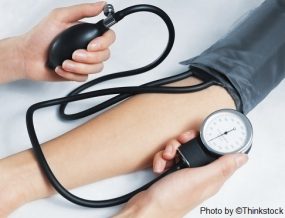NIOSH Training for Nurses on Shift Work and Long Work Hours
Diseases and Shift Work (Continued)
Cardiovascular Disease

Puttonen et al.57 concluded that shift work possibly increases risk for cardiovascular diseases such as myocardial infarction, chest pain, and high blood pressure. Research findings are stronger for a link between shift work and factors that promote development of cardiovascular disease, such as smoking and metabolic disturbances.
Be aware that shift work is possibly a contributing factor in cardiovascular disease. Seek medical attention if you note onset of cardiovascular symptoms such as shortness of breath, heart beat irregularities, chest pain, or high blood pressure. It is important to undergo periodic health screening to detect precursors of cardiovascular disease and to reduce the risks for long-term damage.
During shift work, you may have the following physiologic changes, which possibly are mechanisms for the link between shift work and cardiovascular disease:58
- Decreased glucose tolerance
- Insulin resistance
- Elevated cortisol levels
- Increased sympathetic nervous system activity
